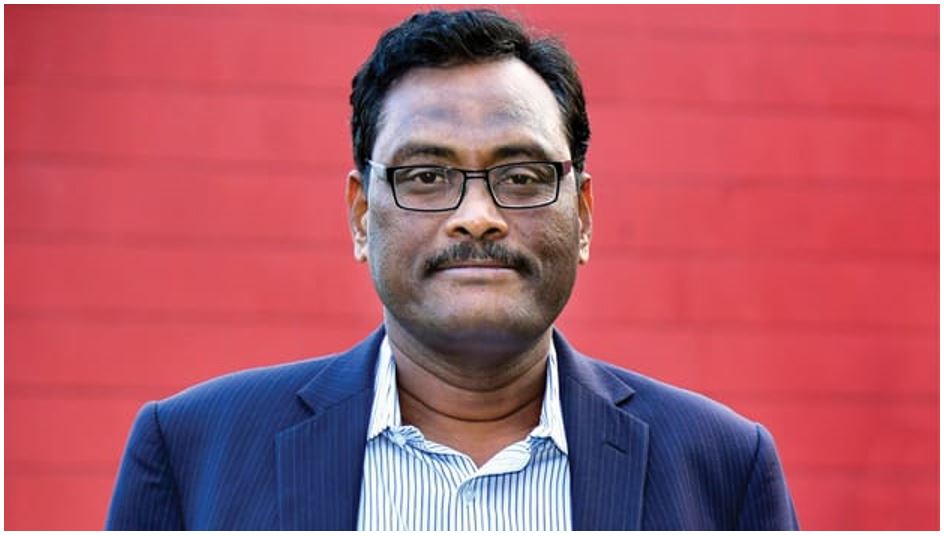Featured
Dr. K Rathnam: How Milky Mist contributes to sustainable development in rural areas
CEO of Milky Mist Dr K Rathnam, takes us through the journey of becoming one of India’s leading dairy producers with an unrivalled range of products. He underlines the contributions made by the company towards sustainable development in rural areas.

Dairy plays a significant role in several aspects of Indian society, including cuisine, religion, culture, and the economy. Milky Mist initially mastered the art of making paneer, a highly liked ingredient in the kitchens of south India and kept improvising to build an empire. The company’s mission is to build a sustainable rural economy by involving farmers at every stage of the production process.
To commemorate their success story, Milky Mist introduced the ‘Building Health India’ campaign. Dr K Rathnam explains the objectives and goals of the campaign and says, “Sourcing good quality milk directly from farmers is the key portion in all our dairy products.” Citing the farmers of south India, he adds, “They wake up every day, milk cows, and directly send it to us. There are no middlemen to steal money. Further, we check the quality of milk and pay them good rates, fulfilling their monetary needs.”
When Milky Mist first entered the frame, there were several challenges upfront. The local milk business was traditionally prone to adulteration as the dairy farmers were forced to sell their produce at low price to agents, who got the lion’s share of profits by reselling it. At that time, the concept of unadulterated milk was rare and it took the firm immense effort to convince the farmers to break away from this exploitative practice.
Dr K Rathnam says,
“Our entire value chain is based on direct benefit to our farmers. Each and every farmer is a member of Milky Mist. To ensure that there is no quality deviation, middlemen are eliminated. We have about 50,000 plus farmers in our dairy. The major factor setting us apart from the rest is that we care for the cattle and provide them excellent cattle food leading to production of more milk than usual.”
The company achieves this by keeping a special eye on fodder composition and its quality. Milky Mist understands milk farmers’ lives and their income revolves around cattle and it must give them maximum benefit. Besides, it also has a fully automated dairy production process that guarantees freshness of products with 99.9 per cent human hands-free productions.
Milky Mist and its rural development go way beyond dairy farming. The company is also involved in community outreach, environmental welfare and sustainable growth. Dr. K Rathnam elucidates, “Our responsibility also lies with the community and the planet because they have made us what we are today. We have shifted to efficient and renewable green energy, which is powering our plants as well as our entire ecosystem. Over the years, more than one lakh trees have been planted in this region and we have taken active initiatives to make conscious choices that help us reduce our waste.”
He adds, “Milky Mist also creates an eco-friendly environment and has installed solar panels to harness the perennial energy of the sun, thus, weakening the dependence on conventional non-renewable energy. The company has also aided and supported several self-help groups working to revive, protect and clean up polluted lakes and rivers.”
Understanding the social corporate responsibilities is the need of the hour. The progress earmarked by dairy industry in India, and especially by Milky Mist sponsors varied interests of the society. As of today, the firm has created employment opportunities for over one lakh people. Besides offering them a good life and fair income along with benefits and healthcare, makes it stand out of the crowd.
“Humane work hours, quality medical care to family members of employees, and modern sanitary toilets in various government schools were once a rare sight, but Milky Mist has ensured it all. The company has brought about the revolutionary change in sustainable rural development and community welfare in India whilst maintaining its exemplary guide that puts light on how profit and welfare can go hand in hand,”
-concludes Dr K Rathnam.
Featured
Nima Sulaiman joins HiLITE Group Board, her father gifts her a Porsche
Nima expressed her gratitude for the opportunity and her eagerness to contribute to the group’s success.

In a move signalling a generational shift in leadership and a commitment to empowering women in the business world, Nima Sulaiman, the daughter of HiLITE Group Chairman P. Sulaiman, has been welcomed onto the board of directors with a stunning gesture—a Porsche worth Rs 3 crore.
At just 18, Nima began her journey with HiLITE Group as a customer service trainee at Hug a Mug Cafe. From there, she transitioned to management roles, showcasing her talent and dedication. With a B.Sc in Economics from the University of London in Singapore, Nima brings a unique blend of academic prowess and practical experience to her new position.
As the Director of HiLITE Urban, a subsidiary of HiLITE Group, Nima is poised to continue the company’s legacy of excellence in construction and development. With a focus on providing quality living spaces and international standards in India, HiLITE Group has been instrumental in transforming Kozhikode city with its innovative projects that include premium residential buildings, ultra modern business parks, state-of-the-art malls and world-class entertainment theaters.
Group Chairman P. Sulaiman expressed his sentiments regarding his daughter’s recent appointment within the Group. He said, “I am immensely proud of Nima’s accomplishments and firmly believe that she is capable to take on greater responsiblities. HiLITE Group has always shed light on the significance of acknowledging and empowering women in leadership positions.” He further emphasised, “The emotional intelligence that women bring to the table is pivotal for fostering effective leadership and establishing trust.”
Nima, in turn, expressed her gratitude for the opportunity and her eagerness to contribute to the group’s success. “Inspired by my experiences visiting renowned malls worldwide, I strive to enrich the atmosphere of HiLITE malls and other projects, infusing them with vibrancy and youthfulness,” she said.
The appointment of Nima Sulaiman to the board of directors represents a significant milestone for HiLITE Group and a testament to the company’s commitment to innovation and inclusivity in the business world. As Nima takes on her new role, she stands as a beacon of inspiration for young women entrepreneurs in South India and beyond.
Featured
Steps to effective retirement planning
The importance of retirement planning depends on ensuring you have adequate funds to live comfortably after you stop earning a stable income.

Retirement planning is a critical aspect of financial stability that often goes overlooked until it’s too late. In India, where the culture of savings is ingrained yet formal retirement planning is still evolving, understanding, and initiating a retirement plan is more crucial than ever.
The importance of retirement planning depends on ensuring you have adequate funds to live comfortably after you stop earning a stable income. It is not only about saving a part of your earnings but also about investing in yourself. Here are some crucial reasons to begin retirement planning – combating inflation, securing financial freedom, managing medical expenditures, maintaining your living standard, supporting family requirements, meeting post-retirement goals, preparing for unanticipated circumstances, and leaving a legacy for dependents.
Here are ways to effectively plan your retirement –
Ø Utilise an online retirement calculator
An important instrument for planning, an online retirement calculator can assist you estimate how much you require to save to live a post-retirement life. It factors in your existing age, savings, retirement age, investments, and anticipated inflation rates.
Anjali is looking to retire at the age of 60 with a lifestyle that needs Rs 50,000 per month. Utilising an online retirement calculator, she considers her existing age of 30, anticipated inflation of 6 per cent and prevailing savings. The calculator estimates she needs a corpus of approximately Rs 2.5 crores to sustain her retirement life, helping her strategise her savings and investments accordingly.
Ø Start early
The sooner you start, the more you benefit from compound interest. Even starting small can lead to substantial growth over decades.
Imagine Rohit, who starts saving Rs 5,000 a month at age 25 in a mutual fund that averages an 8% annual return. By the time he turns 60, his investment would have grown to over Rs 1.50 crore, thanks to compound interest. In contrast, if Priya starts saving the same amount at 35 under the same conditions, she would accumulate about Rs 67 lakhs by age 60. The decade-long head start allows Rohit’s investments more time to compound, significantly impacting his retirement corpus.
Ø Create a retirement budget
Estimate your post-retirement expenses, considering inflation and changing lifestyle needs. Including fixed expenses, healthcare, leisure, and unexpected costs.
Vijay, nearing retirement, lists down his monthly expenses including groceries, utilities, healthcare, and leisure activities like travel and hobbies. Considering inflation, he predicts his current monthly expense of Rs 30,000 will rise to Rs 80,000 by the time he retires. This projection helps him understand how much he needs to save to maintain his lifestyle post-retirement.
Ø Opt for a pension plan
Investing in pension plans offered by insurance companies can guarantee a steady income post-retirement. They also provide tax benefits under Section 80C.
Raj invests in a pension plan that promises a monthly income of Rs 20,000 after retirement. This plan not only secures his future financially but also offers tax benefits today, making it a win-win investment for his retirement years.
Ø Diversify your investment portfolio
Do not put all your eggs in one basket. Invest in a mix of asset classes including equity, debt, mutual funds, and real estate. Consider your risk appetite and investment horizon.
Meena, an investor, allocates her savings across different asset classes—40 per cent in equity for growth, 30 per cent in bonds for stability, 20 per cent in mutual funds for diversified exposure, and 10 per cent in real estate for passive income. This diversification helps balance her risk and provides multiple growth avenues, ensuring her portfolio is well-equipped to handle market volatility.
Ø Maximise your EPF and PPF contributions
The EPF or employee provident fund and PPF or public provident fund are excellent tax-saving instruments that offer secure, high-interest earnings for retirement.
Sunita contributes the maximum allowable limit to her EPF and PPF accounts every year. These contributions not only reduce her taxable income but also accumulate tax-free earnings, creating a significant retirement fund that’s secure and government-backed.
Ø Maintain an emergency fund
Ensure you have an emergency fund worth at least 6-12 months of living expenses. This fund should be easily accessible and kept separate from your retirement savings.
Deepika saves six months’ worth of expenses in a liquid fund, separate from her investments and retirement savings. This fund acts as a financial cushion during unexpected events, such as medical emergencies or sudden unemployment, ensuring her long-term plans remain undisturbed.
Ø Invest in NPS or national pension scheme
The NPS is a government-backed retirement planning instrument that is market-linked and offers various fund options based on your risk tolerance.
Karan opts for the NPS, choosing a mix of equity, corporate bonds, and government securities, aligning with his moderate risk appetite. This allows his retirement savings to grow with the market while offering the flexibility to adjust the asset allocation as he gets closer to retirement.
Ø Educate yourself financially
Stay informed about financial planning, investment options, tax laws, and market trends. Knowledge is power, especially when it comes to managing your money.
Neha spends her time reading blogs linked with finance, attending workshops, and consulting with financial professionals. This constant learning equips her with considerable knowledge to make better decisions about her tax planning, investments, and retirement plan, ensuring she enhances her financial potential.
Ø Assess as well as adjust your plan periodically
Your retirement plan should adapt to your changing life circumstances. Annually, review your assets, savings, and goals and make any necessary modifications.
Every year, Amit updates his retirement plan to reflect changes in his income, spending, and life goals. This regular review keeps him on pace with his retirement objectives, allowing him to make necessary modifications to his savings rate and investment selections.
Final thoughts
Retirement planning is more than a financial responsibility; it is a commitment to your future self. Beginning today not just secures your financial future, but even endows you with mental peace and the opportunity to spend your retirement years as you see fit. Attaining a comfortable retirement involves vision, a proactive attitude, and discipline. Note that it is never too early or very late, to begin with retirement planning. The steps you take now can result in a better and more secure tomorrow.
Featured
Supreme Court AOR firm Vedic Legal settles the debate: Can ancestral property be sold without the consent of successors?

New Delhi (India), June 24: Ancestral property is a valuable asset that is passed
down from one generation to another. It is a symbol of family heritage and pride
that holds significant sentimental value for many families. However, the question
that has been long debated is whether ancestral property can be sold without the
consent of all successors.
According to Indian law, ancestral property is considered to be the collective
property of all successors of the original owner. As a result, the sale of ancestral
property without the consent of all successors is generally not allowed. The
reasoning behind this is that ancestral property is seen as a collective asset, and
all successors have an equal right to it.
However, in certain cases, the sale of ancestral property without the consent of all
successors may be allowed by law. For instance, in cases where the owner of the
property has died intestate and there is no will or agreement in place, legal heirs
may be able to sell off the ancestral property without seeking consent from all
other successors.
It is important to note that the rules regarding the sale of ancestral property
without consent may vary from state to state. Therefore, it is essential to consult a
lawyer before making any decision regarding the sale of ancestral property.
Supreme Court Advocate on record firm with Vedic Legal, a renowned law firm
specializing in property and succession law, recently settled a landmark case in
the Supreme Court. The case involved the sale of ancestral property without the
consent of all successors, and Supreme Court AOR firm Vedic Legal argued that
such a sale was not permissible under Indian law.
The verdict of the Supreme Court, based on Supreme Court AOR firm Vedic Legal
arguments, confirmed that ancestral property could not be sold without the
consent of all successors. This ruling has set a precedent for future cases and has
provided clarity on a contentious issue that has long been debated.
The complexity of the issue of selling ancestral property without the consent of
successors is not lost on legal experts. It is crucial to consider the legal and
ethical implications of such a sale, as it can have significant consequences for all
parties involved.
In some cases, however, selling the ancestral property without the consent of all
successors may be the best option. For example, in cases where there are
disputes between heirs or when some heirs are not reachable, selling ancestral
property without the consent of all successors may be allowed by law.
Additionally, in certain circumstances, selling the ancestral property without
consent may be the only way to resolve financial difficulties faced by the owners of
the property. This may include situations where the owners require funds for
medical treatment or other urgent needs.
However, any decision to sell the ancestral property without the consent of all
successors should be made after careful consideration and consultation with legal
experts. It is essential to ensure that all legal requirements are met and that the
rights of all parties involved are protected.
The sale of ancestral property without consent is a complex issue that requires
careful consideration and legal guidance. While it may be possible in some cases,
it is generally accepted that ancestral property is a collective asset that cannot be
sold without the consent of all successors.
The recent landmark case settled by Supreme Court AOR firm Vedic Legal in the
Supreme Court has provided clarity on the legal aspect of selling ancestral
property without the consent of successors. It has set a precedent for future cases
and has highlighted the importance of seeking legal guidance before making any
decision regarding the sale of ancestral property.
-

 India News21 hours ago
India News21 hours agoLandslide hits Arunachal Pradesh, highway linking Indo-China border affected
-

 Entertainment21 hours ago
Entertainment21 hours agoBollywood stars Salman Khan, Alia Bhatt, Rekha, Sonakshi Sinha, Aditi Rao Hydari attend Sanjay Leela Bhansali’s Heeramandi premiere
-

 Cricket news15 hours ago
Cricket news15 hours agoTelugu superstar Mahesh Babu meets SRH captain Pat Cummins, says it is an absolute honour
-

 Education19 hours ago
Education19 hours agoFarmer’s son Nilkrishna Gajare Nirmalkumar from Maharashtra scores 100 NTA score in IIT-JEE Mains 2024
-

 India News22 hours ago
India News22 hours agoTamannaah Bhatia summoned in illegal IPL streaming app case, to appear before cyber cell on April 29
-

 Cricket news22 hours ago
Cricket news22 hours agoIPL 2024: Rishabh Pant, Axar Patel score half centuries as Delhi Capitals beat Gujarat Titans by 4 runs
-

 2024 Lok Sabha Elections20 hours ago
2024 Lok Sabha Elections20 hours agoBihar: Election Commission extends voting timings for 4 Lok Sabha seats due to heatwave
-

 Entertainment17 hours ago
Entertainment17 hours agoAamir Khan to begin shooting in Delhi for Sitaare Zameen Par next month






